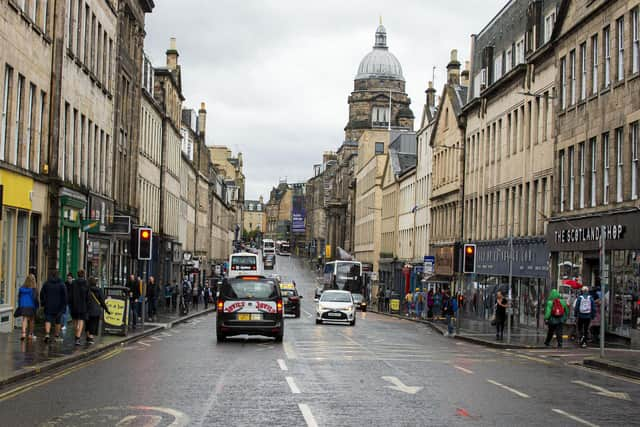Low emission zone requires joined up thinking - Martyn McLaughlin
The so-called ‘dash for diesel’ was pitched as a policy which would promote cleaner fuels and vehicles. It was a claim which many thought absurd at the time. Two decades later, it stands as a grim example of the law of unintended consequences.
At the turn of the millennium, there were just three million diesel cars on Britain’s roads. Today, the figure stands at more than 12 million. The Brown administration’s misstep, which encouraged a huge surge in diesel sales, is largely responsible, and authorities are still trying to repair the damage.
Advertisement
Hide AdAdvertisement
Hide AdEdinburgh City Council’s elected representatives have the chance to do just that when they vote on Thursday on whether to approve plans for a new Low Emission Zone (LEZ). The measure would effectively ban diesel cars that are more than six years old from swaths of the city, with drivers facing fines if they are caught flouting the restrictions.
There is an argument that at a time when Scotland is set to host COP26 the plans do not go far enough. Some have questioned the need for a two year grace period which means the zone; others have called for the introduction of a zero emission zone, rather than one which commits to lower emissions.
One thing is certain - if Edinburgh is to make good on its promise to become a net zero city by 2030, it cannot rely on the new measure in isolation. Meeting that strict target will require significant investment in the city’s electric vehicle infrastructure, and major improvements to its public transport and active travel networks to ensure that social inequity is not among the LEZ’s legacies.
There is a clear environmental benefit from introducing the zone, but such a step is also inextricably tied to the health of the city’s economy. The recovery from Covid-19 will be long and arduous. The city’s councillors should be wary of the law of unintended consequences.


A message from the editor:
Thank you for reading this article. We're more reliant on your support than ever as the shift in consumer habits brought about by coronavirus impacts our advertisers. If you haven't already, please consider supporting our trusted, fact-checked journalism by taking out a digital subscription.
Comments
Want to join the conversation? Please or to comment on this article.
